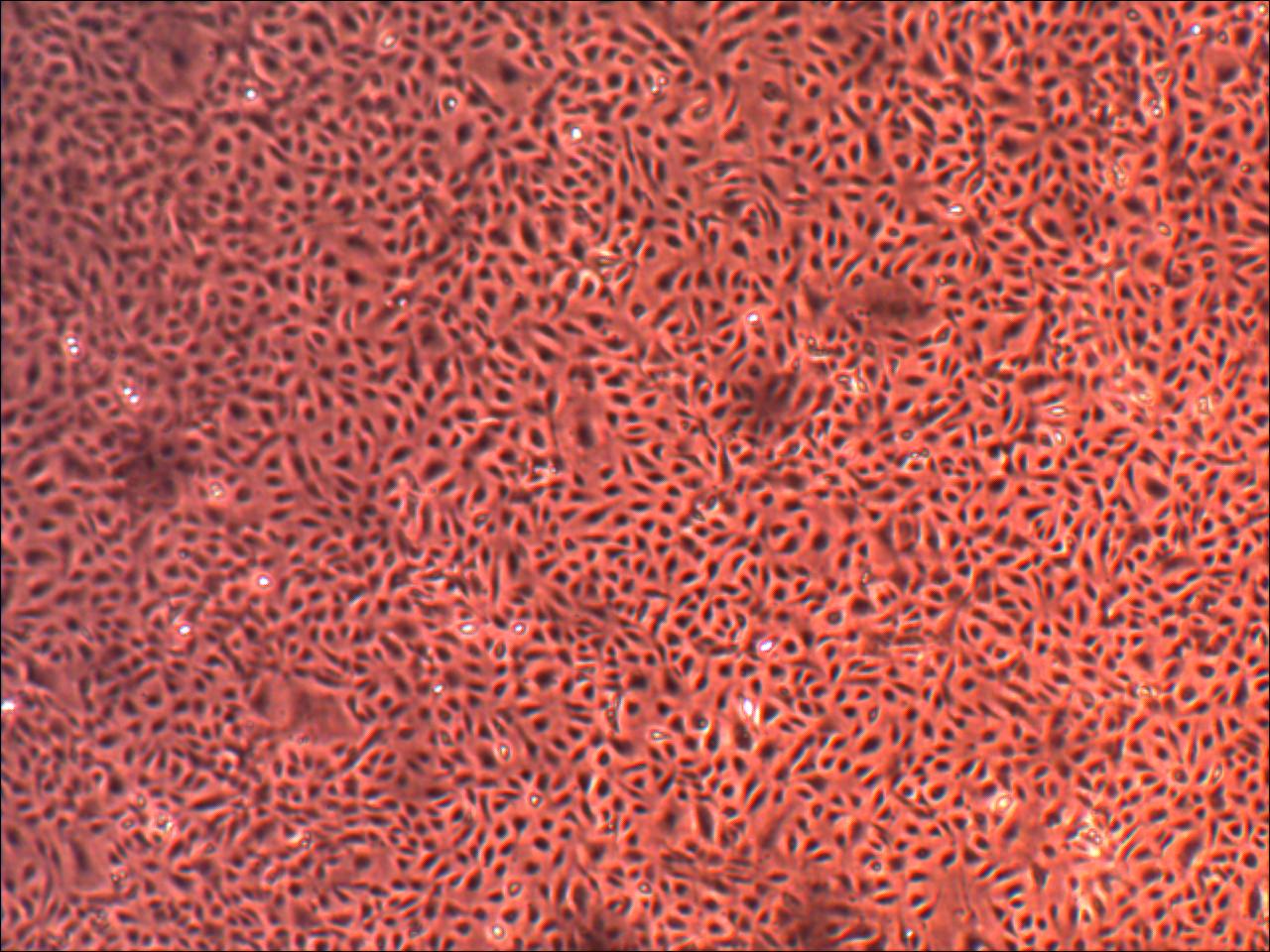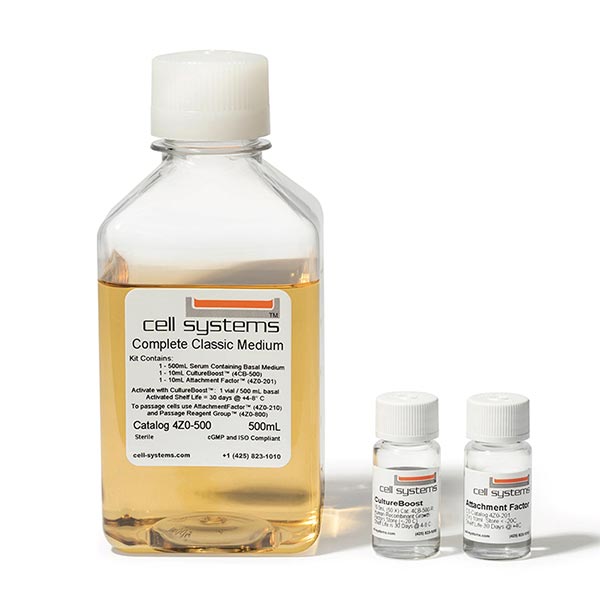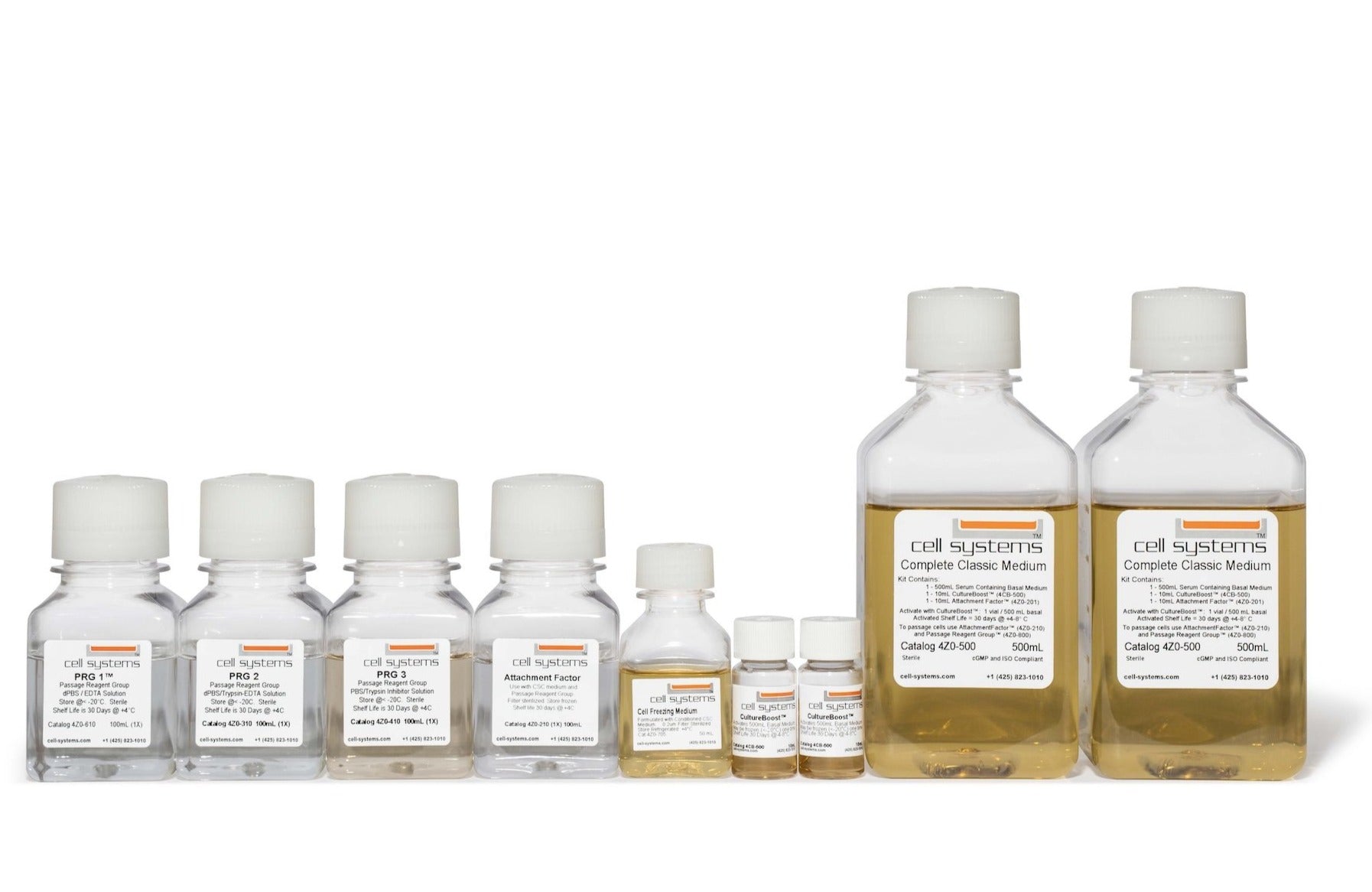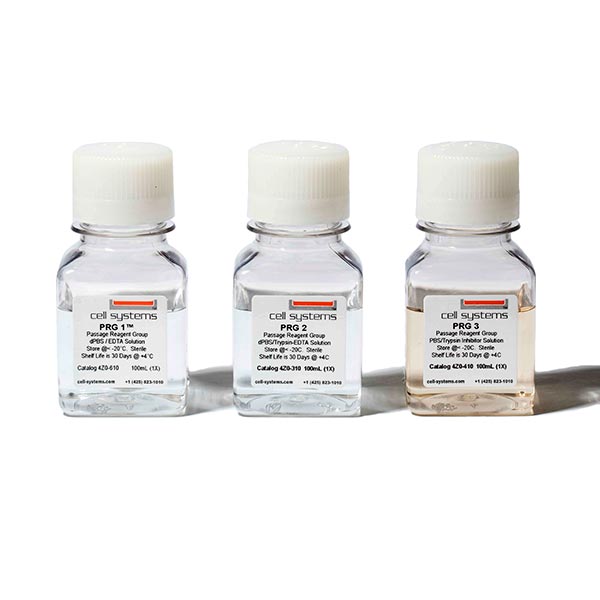These antibody-free human primary cells were initiated from normal human peripheral lung tissue without the use of positive selection of antibodies.
Primary Human Lung Microvascular Endothelial Cells (ACBRI 468)

- PRODUCT INFO
- CITATIONS
- TESTS
- RESEARCH
- DOCUMENTATION
Increase Biological Relevance with Human Primary Cells
Our antibody-free primary cells can offer a more biologically relevant cell culture tool for scientists to enhance their research insights. These primary cells were originated using Cell Systems Complete Serum-Free Medium (SF-4Z0-500) and subsequently grown and passaged in Cell Systems Complete Classic Medium (4Z0-500). The cells are cryopreserved in Cell Systems Cell Freezing Medium (4Z0-705).
- Isolated from normal, healthy donor tissue
- Available at Passage 3 (<12 cumulative population doublings)
- Each vial contains approximately 1 x 106 cells
- Supplied as frozen, cryopreserved 1 mL vials or as actively proliferating flask
- Available in reserved lots to enhance consistency in your research program
Each vial of cells is shipped to customers with 1mL of Bac-Off® and .25mL of CultureBoost™.
ELEVATE RESEARCH CONSISTENCY
WITH OUR RESERVED LOT PROGRAM
ELEVATE RESEARCH CONSISTENCY
WITH RESERVED LOT PROGRAM
The Reserved Lot Program is designed to assist researchers in securing consistent supplies of human primary cells for their long-term research projects.
How the LOT Program Can Benefit You:
- Reserve a Specific Number of Vials: You can reserve a set number of vials from a designated lot at no cost, ensuring that you have continued access to the same consistent cell lot throughout your research.
- Request New Lots: Our LOT program allows you to request the generation of new lots, with up to 200 vials made specifically for your research needs. While we typically offer 1.00 x 10⁶ cells/vial, we can customize the cell count per vial if necessary to meet your requirements.
RESERVE YOUR LOT TODAY! Email us at customerservice@cell-systems.com or call 425-823-1010.
A Selection of Citations for ACBRI 468 from Scientific Journals
Discover additional research on Google Scholar that utilizes Cell Systems primary cells.
- "Extracellular mRNA transported to the nucleus exerts translation-independent function" Tomita et al. Nature Communications, 2021.
- "Development of an in vitro airway epithelial–endothelial cell culture model on a flexible porous poly(trimethylene carbonate) membrane based on Calu-3 airway epithelial cells and lung microvascular endothelial cells" Pasman et al. Membranes, 2021.
- "Insulin prevents pulmonary vascular leakage by inhibiting transglutaminase 2 in diabetic mice" Jeon et al. Life Sciences, 2019.
-
"Comprehensive investigation of disease-specific short peptides in sera from patients with systemic sclerosis: Complement C3f-des-arginine, detected predominantly in systemic sclerosis sera, enhances proliferation of vascular endothelial cells" Xiang et al. Arthritis and Rheumatology, 2007.
-
"Gene expression profiles of endothelial progenitor cells by oligonucleotide microarray analysis" Furuhata et al.Molecular and Cellular Biochemistry, 2006.
-
"A Cytoplasmic RNA Vector Derived from Nontransmissible Sendai Virus with Efficient Gene Transfer and Expression" Li et al. Journal of Virology, 2000.
Standard Tests
| TESTS | RESULTS |
| HIV Serologic Test (donor level HIV AB EIA) | Negative |
| HIV PCR Test (frozen cell pool by CLIA Licensed Clinical Lab) | Negative |
| Hepatitis B (HBV) and Hepatitis C (HCV) PCR Test (at frozen cell level) | Negative |
Retail Production (P3)Tests
| TESTS | RESULTS |
| Bacterial Sterility (culture method) by independent lab | Pass |
| Fungal Sterility (culture method) by independent lab | Pass |
| Mycoplasma Sterility (culture method) by independent lab | Pass |
Cell Markers and Functional Tests
| TESTS | RESULTS |
| Inducible expression of CD 62E (E-Selectin) | > 90% positive by immunofluorescence |
| Cytoplasmic VWF / Factor VIII | > 95% positive by immunofluorescence |
| Cytoplasmic uptake of Di-I-Ac-LDL | > 95% positive by immunofluorescence |
Cells Characterization in Peer-Reviewed Literature
From Li et al Journal of Virology (2000) 74:6564-6569. Figure 5. Introduction and expression of the EGFP gene by the F-defective SeV vector in a variety of cell types in vitro. (A to C) GFP expression by primary neuronal cells derived from rat cerebral cortex 5 days after infection with the vector at an MOI of 5 at lower (A) and higher (C) magnification and immunostained with anti-MAP2 antibody (B). (D to I) Normal human hepatocytes (D and G), normal human lung microvascular endothelial cells (E and H) [ACBRI 468] , and normal human smooth muscle cells (F and I) [ACBRI 716] were infected with the F-defective SeV vector at an MOI of 3. GFP expression was observed 3 days after infection (G to I).
COMPANION PRODUCTS:
OPTIMIZE YOUR RESEARCH
WITH HUMAN PRIMARY CELLS
Avoid the obstacles from immortalized cell lines or animal models and gain more pertinent insights into human cell biology.
Cell Systems cells are available for in vitro research purposes only and may not be transferred out of the direct control of the recipient Institution/Agency/Organization. Cell Systems cells may not be genetically altered in any way without prior written permission from Cell Systems. Use of Cell Systems materials (evidenced by placement of any order for product) constitutes knowledge, understanding and binding acceptance of these restrictions on behalf of the recipient Institution/Agency/Organization.
Cell Systems was created to further the knowledge of eukaryotic cell biology through laboratory research, publications and teaching. Cell Systems provides cells and cell culture products to other research entities - public and private.




